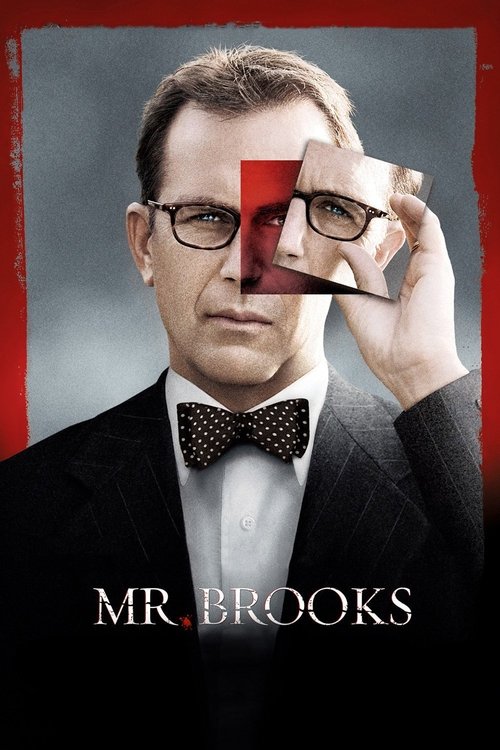
Title: Mr. Brooks
Year: 2007
Director: Bruce A. Evans
Writer: Raynold Gideon
Cast: Kevin Costner (Earl Brooks),
Demi Moore (Det. Tracy Atwood),
Dane Cook (Mr. Smith),
William Hurt (Marshall),
Marg Helgenberger (Emma Brooks),
Runtime: 120 min.
Synopsis: A psychological thriller about a man who is sometimes controlled by his murder-and-mayhem-loving alter ego.
Rating: 6.934/10
The Shadow of Restraint: Unraveling the Duality in *Mr. Brooks*
/10
Posted on July 18, 2025
In Mr. Brooks (2007), director Bruce A. Evans crafts a psychological thriller that dares to probe the fractured psyche of a serial killer with unsettling intimacy, yet stumbles in its ambition to reconcile its tonal contradictions. Kevin Costner’s portrayal of Earl Brooks, a seemingly impeccable businessman harboring a murderous alter ego, is the film’s pulsating heart. Costner, often typecast as the stoic everyman, subverts expectations with a performance that oscillates between chilling restraint and raw vulnerability. His internal dialogues with Marshall, his imaginary id (played with devilish glee by William Hurt), are electric, transforming what could have been a gimmick into a haunting exploration of self-control and surrender. These scenes, often staged in shadowy domestic spaces or sterile offices, underscore the film’s central tension: the veneer of normalcy masking chaos.
The screenplay, co-written by Evans and Raynold Gideon, is both the film’s triumph and its Achilles’ heel. It ambitiously weaves a cat-and-mouse game involving a detective (Demi Moore) and a blackmailing amateur (Dane Cook), but the narrative sprawls, diluting its psychological depth. Moore’s Tracy Atwood, a determined cop with her own demons, feels underwritten, her subplot a distraction from Brooks’ internal war. Cook’s casting, while bold, jars against the film’s gravitas; his comedic persona undermines the menace his character aims to project. This unevenness in tone vacillating between introspective drama and pulpy thriller prevents Mr. Brooks from fully cohering.
Cinematographer John Lindley’s work, however, elevates the film’s atmosphere. Portland’s rain-soaked streets and muted color palette mirror Brooks’ suppressed turmoil, with tight close-ups capturing Costner’s micro-expressions eyes that flicker with guilt or glee. The camera’s deliberate pacing contrasts with the frenetic energy of the murder scenes, creating a visual rhythm that keeps viewers tethered to Brooks’ unraveling mind. Ramin Djawadi’s score, though understated, complements this mood, its minimalist strings adding a layer of unease without overpowering the narrative.
What makes Mr. Brooks linger is its refusal to moralize. It neither glorifies nor condemns its protagonist but invites us to sit with his contradictions a choice both bold and divisive. Yet, the film’s ambition to juggle multiple perspectives ultimately frays its focus, leaving us with a portrait that is compelling but incomplete. Costner and Hurt’s interplay, paired with Lindley’s evocative visuals, ensures the film’s place as a flawed yet fascinating study of duality.
0
0
